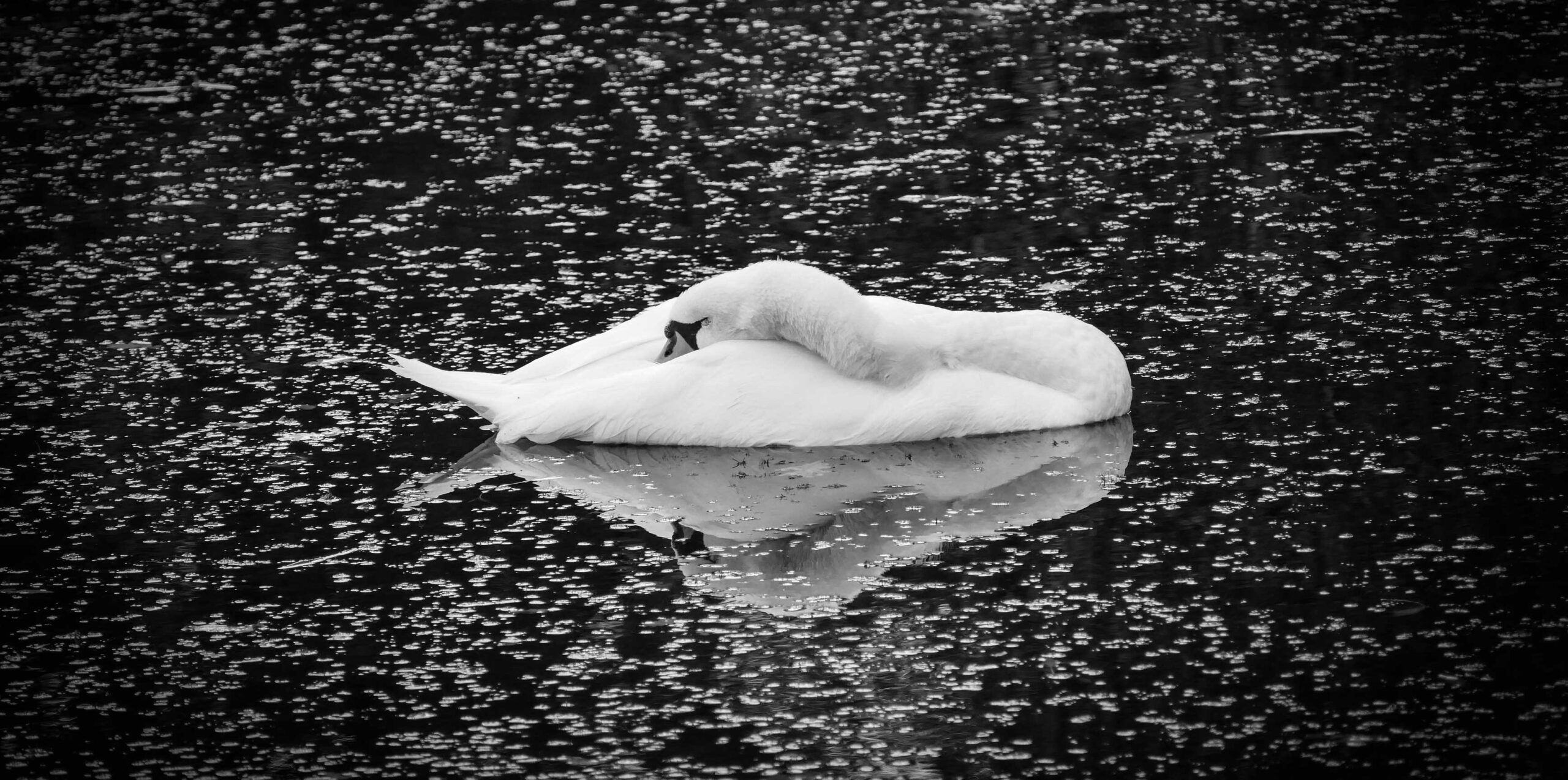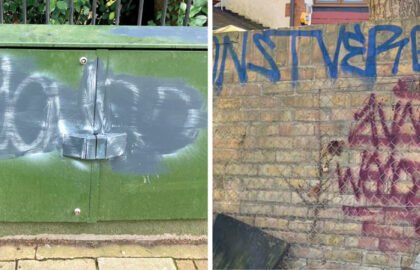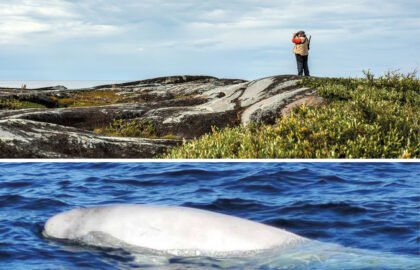Swan Sanctuary rescuer Gill Walker reflects on the recent outbreak of avian influenza and the impact it has had on wildlife across Wanstead and Snaresbrook. Photo of mute swan on Eagle Pond by Geoff Wilkinson
We are lucky to have three substantial swan flocks on local lakes, as well as swan pairs, many with cygnets, nearby. But sadly, the avian influenza virus that has been devastating our coastal sea bird colonies all year has now hit our local bird populations.
In early October, swans and geese with signs of avian influenza were seen at Fairlop Waters. Within a few days, sick geese were found at Valentines Park. Meanwhile, in Wanstead Park, the swan family that bred on the Shoulder of Mutton Pond moved to the Heronry Pond. Shortly after, one of their cygnets became unwell and died, and over the coming days, all three cygnets and both adults died.
Greylag geese were also reported with similar signs of illness at nearby Alexandra Lake and Jubilee Pond on Wanstead Flats. Within a few days, birds were observed with similar symptoms at Hollow Pond on Leyton Flats. There were deaths, and by the end of October, the disease was also established at Eagle Pond in Snaresbrook.
This strain of avian influenza, H5N1, is highly contagious and there is no treatment or cure. For this reason, The Swan Sanctuary (and other rescue centres) are unable to admit any casualties because of the risk of exposing existing bird patients and disabled resident birds to the virus. We know that some birds will recover naturally; we have seen this both at Eagle Pond and Hollow Pond. Sadly, many of our cygnets born this year have died as they have never previously been exposed to any variant of this type of virus and have no resistance.
We recommend leaving poorly birds on the water, in the environment they know, allowing them a chance to recover. Members of the public should not touch or pick up sick birds. Vets are unable to provide treatment and there is a risk, however small, that the virus can be transmitted to humans. If a bird is on the bank, vulnerable and distressed, please notify the RSPCA urgently, although all they can provide is euthanasia to prevent suffering. Poorly birds are unable to react quickly and are therefore vulnerable to dogs or predators. So, please keep your dogs on a lead near water bodies, especially as dogs that bite an infected bird could themselves catch the virus.
Thanks to the dedication of local residents Helen and Katie O’Rourke, we have very detailed data for Eagle Pond. The virus arrived at the end of October, and as of 16 November, from a flock of about 80 swans of mixed ages, 14 adults and 10 cygnets have died, along with 12 Canada geese. On the bright side, we know for sure three cygnets that were very poorly are recovering well, as have many adults.
You can help preserve and protect our precious birds by feeding them quality nutritious food. Plain wheat grain, seeds and oats, brown bread and commercially available swan pellets are all good supplements and similar to their natural diet. Never feed by hand, always feed in the water, and spread out the food to prevent a feeding scrum. All of our birds will be exposed to this horrible disease and we need to support them now, more than ever, to give them the best chance of recovery.
To help fund local swan rescue volunteers, visit wnstd.com/swanfund
To report an injured swan to The Swan Sanctuary, call 01932 240 790
To report an injured animal to the RSPCA, call 0300 1234 999




